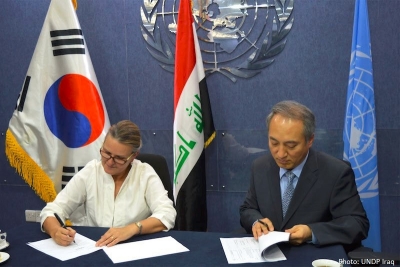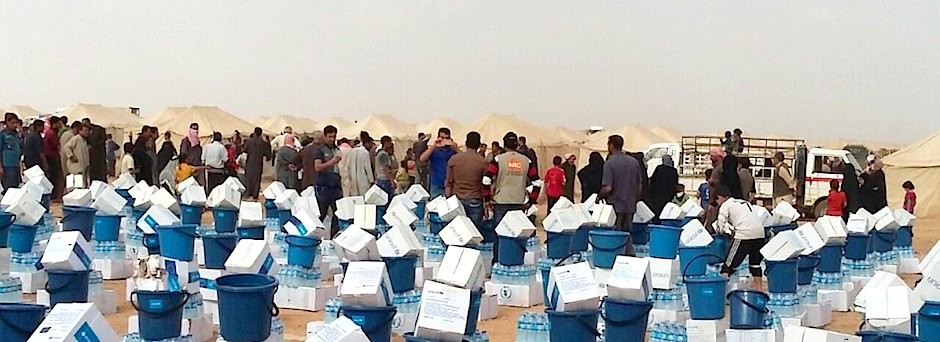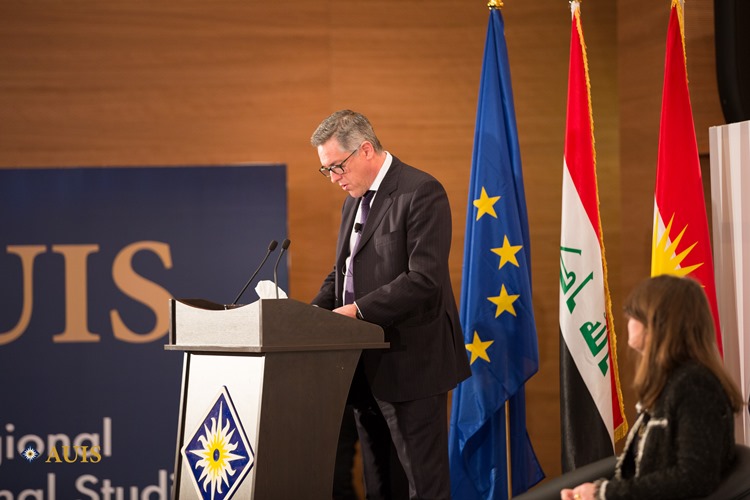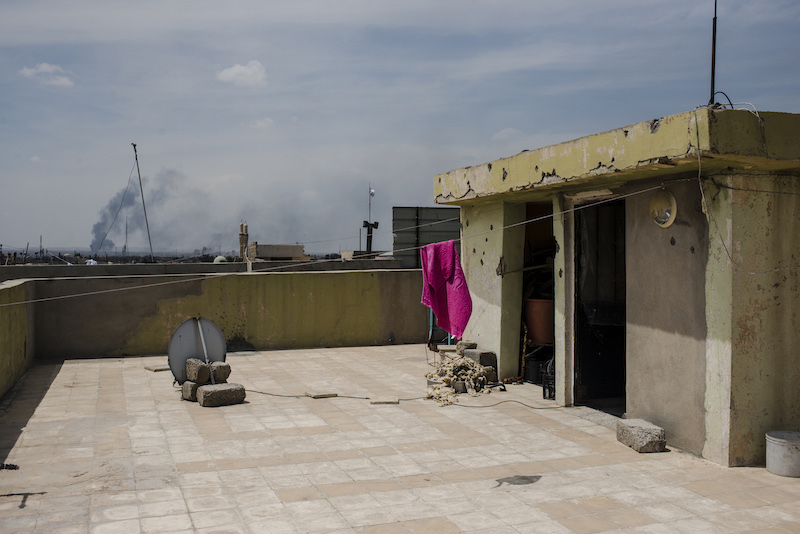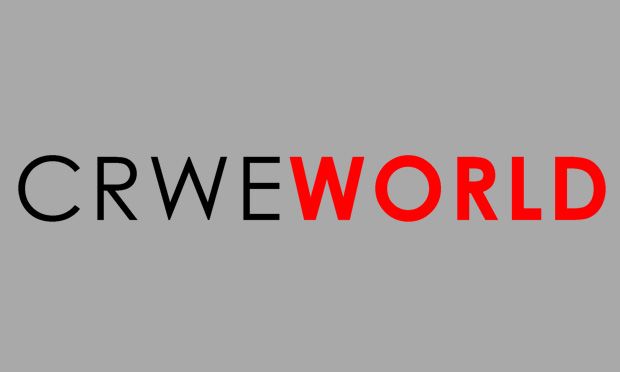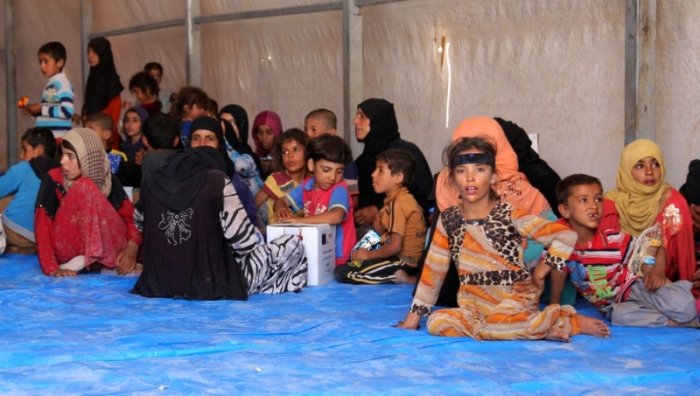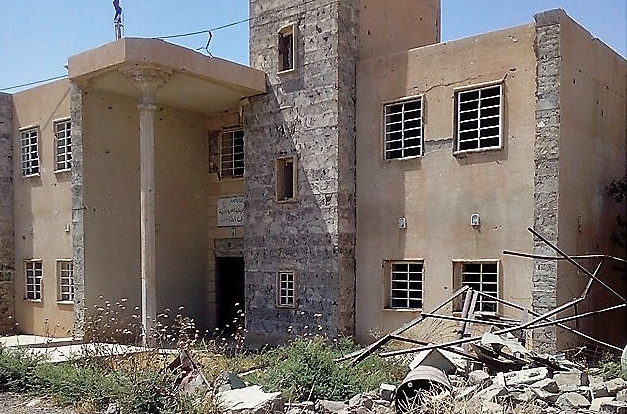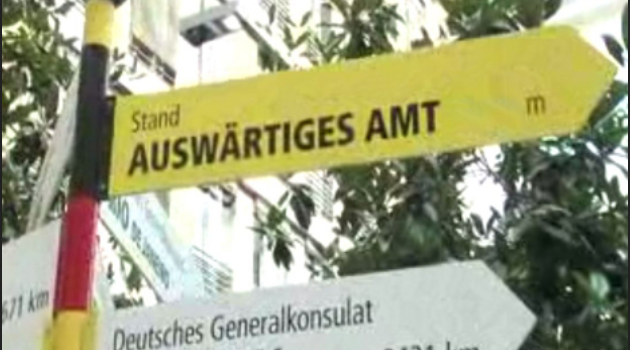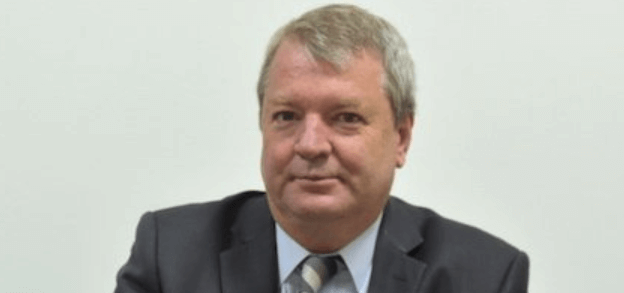The Government of the Republic of Korea and the United Nations Development Programme (UNDP) signed a partnership agreement today for US$4 million to support stabilization and recovery in newly liberated areas in Iraq.
Korea’s contribution will be channeled through UNDP’s Funding Facility for Stabilization (FFS), which finances fast-track initiatives in areas retaken from ISIL. This is Korea’s fourth contribution since 2015 to FFS.
Based on priorities identified by the Government of Iraq and local authorities, FFS helps quickly repair public infrastructure, provides grants to small businesses, boosts the capacity of local government, and provides short-term employment through public works schemes.
During a signing ceremony held in Baghdad, UNDP Resident Representative for Iraq, Ms. Lise Grande, said:
“Stabilizing Mosul is the biggest stabilization challenge we have faced. There are 366 stabilization projects already underway in the city, but so much more needs to be done. This generous contribution from the Republic of Korea will help us accelerate our work in western Mosul. The level of destruction in this part of the city is the worst in the country.”
H.E. the Korean Ambassador to Iraq, Mr. Song Woong-Yeob, said,
“The Republic of Korea is deeply committed to supporting efforts of the Iraqi Government and the international community to stabilize areas affected by the violence of ISIL. I firmly believe that our fourth contribution will further help the efforts by imbuing affected Iraqis with hope and empowering them to recover and start the process of rebuilding their communities.”
UNDP’s Funding Facility is implementing over 1,200 initiatives in newly liberated areas of Anbar, Salah al-Din, Ninewah, and Diyala.
(Source: UNDP in Iraq)

